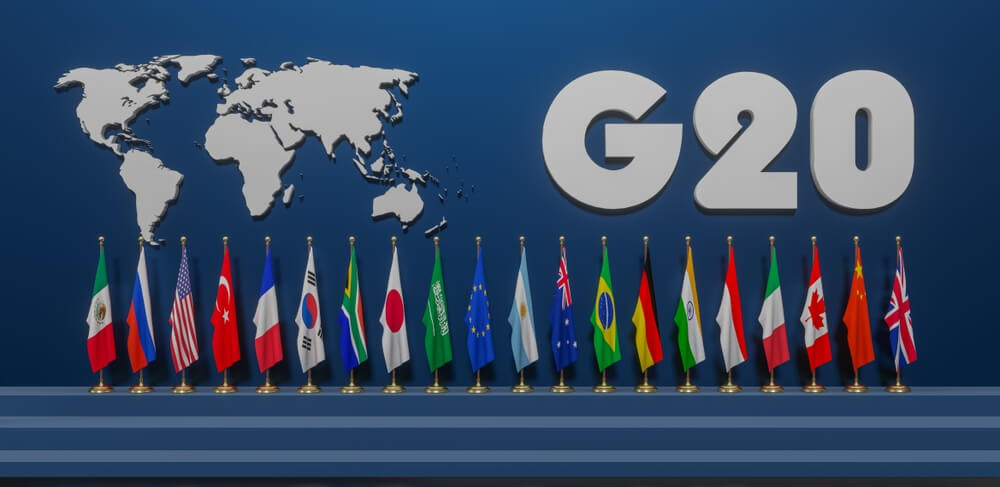The G20, is developing a common framework to help all countries deal with the risks associated with cryptocurrency investments.
Under India’s presidency, the G20 has called for coordinated global crypto policies, which have been suggested by India’s Finance Minister, Nirmala Sitharaman.
The aim is to address the numerous crypto collapses and shocks worldwide and develop a common framework for all countries to deal with this matter.
In a speech at the Peterson Institute for International Economics in Washington DC, Sitharaman emphasized the need for a coordinated effort from all jurisdictions, stating that “cryptocurrencies are a very important part of the discussion under the #G20India presidency.”
She also highlighted the G20’s plan to bring global economies together to fight debt distress and hyperinflation in smaller economies such as Sri Lanka and Ghana.
Sitharaman’s statement reflects the challenges faced by the crypto industry, with numerous ecosystem collapses impacting investors worldwide. A coordinated effort from all countries is required to address the global reach of cryptocurrencies and create a common framework to manage the risks associated with them.
The G20’s plan to develop a common framework for managing cryptocurrency investments comes at a crucial time, with India’s G20 presidency ending on November 30, 2023. This leaves seven months for the group of 20 nations to develop blanket crypto reforms that can be implemented across jurisdictions.
The significance of cryptocurrencies in reducing the impact of hyperinflation and dependence on the US dollar was highlighted by the previously struggling economy of El Salvador. The country recently made Bitcoin a legal tender and has showcased the importance of an asset like Bitcoin in reducing the impact of hyperinflation.
In addition to this, India’s home-grown payment network, the unified payments interface (UPI), is also expanding its reach. Singapore’s PayNow rapid payment system recently integrated UPI to allow swift cross-border payments.
This move will facilitate outgoing remittances by the State Bank of India, Indian Overseas Bank, Indian Bank, and ICICI Bank, with incoming remittances facilitated by Axis Bank and DBS Bank India.
While the development of a common framework for managing cryptocurrency investments is a positive step, it is also essential to recognize the role of cryptocurrencies in facilitating cross-border transactions and reducing the impact of hyperinflation.
The G20’s plan to bring together global economies to fight debt distress and hyperinflation in smaller economies like Sri Lanka and Ghana is also a crucial step in the right direction.
G20 Crypto Risks
In conclusion, the G20’s plan to develop a common framework for managing cryptocurrency investments and its efforts to bring global economies together to address debt distress and hyperinflation in smaller economies is a positive step towards creating a more stable and secure financial system.
The development of a common framework will require a coordinated effort from all jurisdictions, but it is essential to ensure the safe and efficient management of cryptocurrencies and their associated risks.
